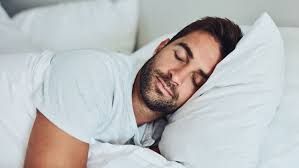Welcome to our special section, Thrive on Campus, devoted to covering the urgent issue of mental health among college and university students from all angles. If you are a college student, we invite you to apply to be an Editor-at-Large, or to simply contribute (please tag your pieces ThriveOnCampus). We welcome faculty, clinicians, and graduates to contribute as well. Read more here.
Sleep is a wonder drug! As much as sleep is enjoyable, it fulfills essential bodily and mental functions. Sleep is necessary for all living things. It is not simply about rest, enjoyment, and quiet solitude. Sleep has amazing powers!
Sleep is basically when the mind/body does a complete mental, emotional, and physical overhaul. During a good quality sleep is when the body is rejuvenated and recharged. The role of sleep has been linked to brain functions such as memory and learning as well as many functions of the body from repair to regeneration of tissues, to strengthening the immune system and building bones and muscles. Poor sleeping patterns is linked to an increase in mortality and other health problems such as high blood pressure, obesity, heart attack, stroke, and mood disorders (Porter, 2019).
Thousands of years ago ancient civilizations recognized the power of sleep. Ancient traditional medical practices underscore the importance of the mind body connection and the role of sleep in our daily lives.
Ayurveda is a mind body medicine that is receiving renewed interest in its application to treat sleep disorders. The Chopra Center is a research institute that develops practices based on Ayurveda principles that can aid in sleep disorders.
Exciting developments in mind body medicine research shows the power of the body to support its own healing. In the last 20 years there has been a plethora of research that shows how effective mind body medicine is in the treatment of sleep disorders.
Effective Mind Body Medicine Treatments for Sleep Disorders
Developing healthy sleep hygiene and learning about relaxation methods have been an extremely effective evidence-based mind body medicine practice for sleep disorders. Vincent and Lewycky (2009) studied over 100 adults with chronic insomnia. They offered an invention that consisted of online education about sleep hygiene and stimulus control. The results were that the treatment “produced improvements in the primary end points of sleep quality” and the severity of insomnia and daytime fatigue were noticeably reduced, as well as “dysfunctional beliefs about sleep” (Vincent and Lewycky, 2009).
In the research by Irwin et al. (2008), over 100 older adults with moderate sleep complains learned about the importance of sleep and health education, along with Tai Chi Chih practice. Subjects showed improvements using the Pittsburgh Sleep Quality Index. The sleep patterns of the participants improved in duration, efficiency and less sleep disturbances.
In a comparison between use of a placebo and health education on sleep, the study by Soeffing et al. (2008) experimented with over 40 older adults with chronic insomnia. The intervention consisted of sleep health education, 7.5-mg of zopiclone nightly or placebo medication. Over six months the three groups sleep patterns were tracked. The group that learned about sleep hygiene had better sleep patterns and efficiency that those taking the placebo and the zopliclone, though the total sleep time was similar across all three groups.
Other researchers found that sleep health education was enough for greater sleep efficiencies and in reducing sleep disturbances for people suffering from sleep disorders (Carney et al., 2003; Goodwin et al, 2004; Irwin et al., 2008; Jarrin et al., 2013; Lichstein et al, 2001; Waters et al., 2011).
In addition to health education about sleep hygiene, other mind body practices have shown success in treating sleep disorders. Harmat et al. (2008) in a study with 94 college students with sleep complaints looked at the use of classical music or audiobook, versus no intervention for improving sleep. Using a sleep quality scale, students who listened to classical music showed significantly improved sleep quality over the other two groups.
In a study by Manjunath and Telles (2005) 120 older adults tried yoga, herbal medicine, versus a control group who did not change their sleep habits. The group who used yoga saw significant improvement in sleep habits including decrease in length of time to fall asleep, increase in total numbers of hours asleep, and overall feeling of being rested after rising in the morning even up to six months after treatment.
In another study by Lichstein et al. (2001) 89 older adults with insomnia were treated with the intervention of relaxation practices, sleep compression, or placebo desensitization. Sleep compression was found to be most effective, but all intervention showed improved self-reported sleep, though objective sleep was unchanged.
Not all mind body interventions have shown success. Pallesen et al (2003) conducted a study with 55 older adults with insomnia. The group was provided with education about sleep hygiene, stimulus reduction, and the control group was provided with relaxation recordings. There was no difference between the two groups after the interventions.
Sleep Health Education and Practices
The evidence-based practices that support mind body medicine is overwhelmingly positive. As a new health educator, I hope to be able to use these practices in my work. I have been working in the field of college student services for over 15 years. I have mostly concentrated my career in the delivery of technical support to students in the college going process. Now I am developing practices to support student well-being.
Learning About Sleep for Students
To support student sleep hygiene I developed a Self-care curriculum, I provide an opportunity for students to reflect on their own sleep practices. There is also a mindfulness component to show ways to pay attention and be attuned to the connection between their decisions about time management and how those decisions impact sleep habits. As well, I encourage students to develop a sleep plan.
We discuss the need to reduce distractions and importance of a regular sleep schedule. Like many adults, students have false beliefs and misinformation about the amount of sleep that is necessary for proper brain and memory function. I provide resources and documentation, so students understand that recent research supports the importance of sleep hygiene. One class at a time,I am helping students changing the way they think about sleep.
Sleep truly is a wonder drug. It is free, fun, and fulfills a basic health requirement for the betterment of all our lives. Everyone can do their part in shaping our environment and beliefs for better sleep habits. Better sleep, better health!
Subscribe here for all the latest news on how you can keep Thriving.
More on Mental Health on Campus:
What Campus Mental Health Centers Are Doing to Keep Up With Student Need
If You’re a Student Who’s Struggling With Mental Health, These 7 Tips Will Help
The Hidden Stress of RAs in the Student Mental Health Crisis
References
Carney, C. E., Edinger, J. D., Meyer, B., Lindman, L., & Istre, T. (2006). Daily activities and sleep quality in college students. Chronobiology international, 23(3), 623-637.
Edinger, J. D., Wohlgemuth, W. K., Radtke, R. A., Marsh, G. R., & Quillian, R. E. (2001). Does cognitive-behavioral insomnia therapy alter dysfunctional beliefs about sleep?. Sleep, 24(5), 591-599.
Goodwin, J. L., Kaemingk, K. L., Fregosi, R. F., Rosen, G. M., Morgan, W. J., Smith, T., & Quan, S. F. (2004). Parasomnias and sleep disordered breathing in Caucasian and Hispanic children–the Tucson children’s assessment of sleep apnea study. BMC medicine, 2(1), 14.
Harmat, L., Takács, J., & Bodizs, R. (2008). Music improves sleep quality in students. Journal of advanced nursing, 62(3), 327-335.
Irwin, M. R., Olmstead, R., & Motivala, S. J. (2008). Improving sleep quality in older adults with moderate sleep complaints: a randomized controlled trial of Tai Chi Chih. Sleep, 31(7), 1001-1008.
Jarrin, D. C., McGrath, J. J., Silverstein, J. E., & Drake, C. (2013). Objective and subjective socioeconomic gradients exist for sleep quality, sleep latency, sleep duration, weekend oversleep, and daytime sleepiness in adults. Behavioral sleep medicine, 11(2), 144-158.
Lichstein, K. L., Riedel, B. W., Wilson, N. M., Lester, K. W., & Aguillard, R. N. (2001). Relaxation and sleep compression for late-life insomnia: a placebo-controlled trial. Journal of consulting and clinical psychology, 69(2), 227.
Manjunath, N. K., & Telles, S. (2005). Influence of Yoga & Ayurveda on self-rated sleep in a geriatric population. Indian Journal of Medical Research, 121(5), 683.
Pallesen, S., Saxvig, I. W., Molde, H., Sørensen, E., Wilhelmsen-Langeland, A., & Bjorvatn, B. (2011). Brief report: behaviorally induced insufficient sleep syndrome in older adolescents: prevalence and correlates. Journal of adolescence, 34(2), 391-395.
Porter, V. (2019) A Mind-body Prescription for Restful Sleep. Retrieved on March 19, 2019. https://chopra.com/articles/mind-body-perscription-restful-sleep
Soeffing, J. P., Lichstein, K. L., Nau, S. D., McCrae, C. S., Wilson, N. M., Aguillard, R. N., … & Bush, A. J. (2008). Psychological treatment of insomnia in hypnotic-dependant older adults. Sleep Medicine, 9(2), 165-171.
Vincent, D., & Lewycky, S. E. (2009). Research Forum. Behavior Therapist, 32(6).
Waters, F., & Bucks, R. S. (2011). Neuropsychological effects of sleep loss: implication for neuropsychologists. Journal of the International Neuropsychological Society, 17(4), 571-586.


